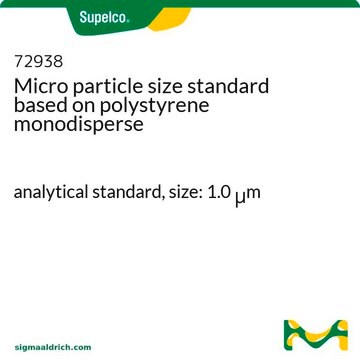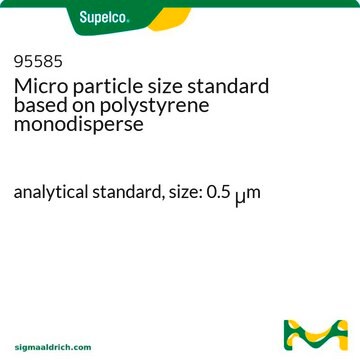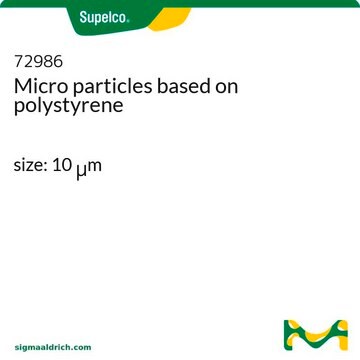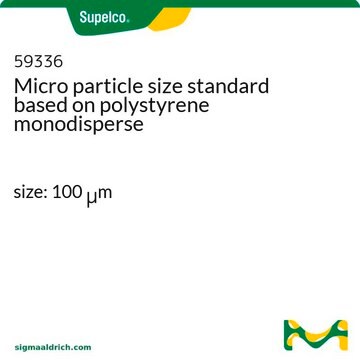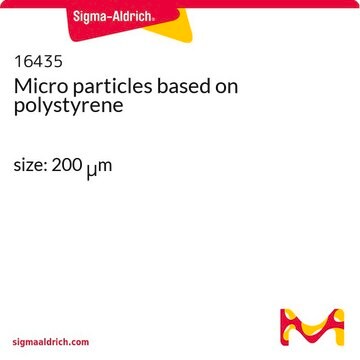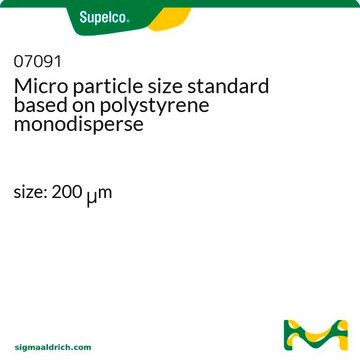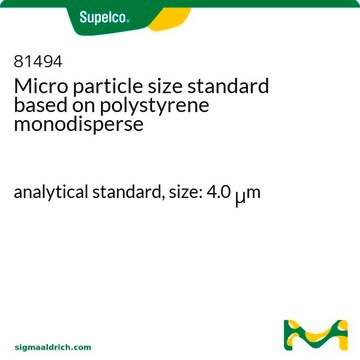95581
Micro particle size standard based on polystyrene monodisperse
size: 0.2 μm
Synonym(s):
Monodisperse polystyrene latex particles (0.2 μm), monodisperse polystyrene microbeads (0.2 μm), monodisperse polystyrene microspheres (0.2 μm), polystyrene monodisperse microparticles (0.2 μm), Size standards
Select a Size
Select a Size
About This Item
Recommended Products
grade
analytical standard
Quality Level
form
aqueous suspension
crosslinking
0 % cross-linked
concentration
2% (solids)
particle size
0.2 μm std dev <0.03 μm
application(s)
glass & ceramic
industrial qc
pharmaceutical
format
neat
storage temp.
2-8°C
Looking for similar products? Visit Product Comparison Guide
Related Categories
General description
application
Monodisperse polystyrene latex particles are also used to find the PSD of colloidal dispersions.
Features and Benefits
- suitable for routine instrument calibration checks, testing and corrections
- available in 5 mL and 10 mL pack sizes as neat samples
Analysis Note
- Transmission electron microscopy (TEM)
- Scanning electron microscope
- Light microscopy
- Coulter™ counter with MDF-system
Legal Information
Storage Class
10 - Combustible liquids
wgk_germany
WGK 3
flash_point_f
410.0 °F
flash_point_c
210 °C
ppe
Eyeshields, Gloves
Choose from one of the most recent versions:
Already Own This Product?
Find documentation for the products that you have recently purchased in the Document Library.
Customers Also Viewed
Our team of scientists has experience in all areas of research including Life Science, Material Science, Chemical Synthesis, Chromatography, Analytical and many others.
Contact Technical Service
